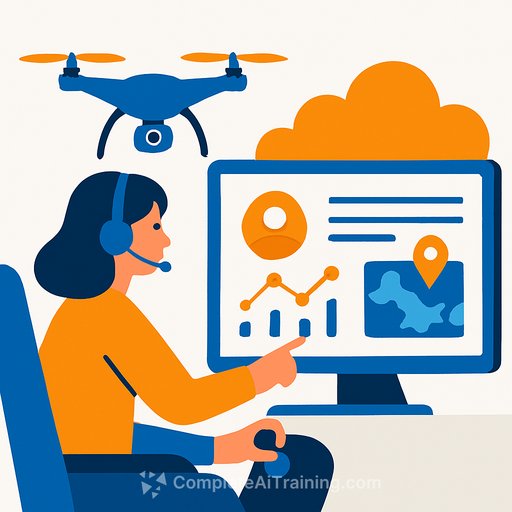Southern Pines-Based Clara Copilot Brings Clarity To Intelligence Operations
Clara Copilot is built for operators who live in high-signal, high-stakes environments. The software organizes, analyzes, and recommends next steps from live data feeds-so teams move faster with fewer blind spots.
Co-founders Alex Moffitt and Tyson Myhres created the platform after Moffitt's experience leading a special operations civil affairs team in the U.S. Army. Information was fragmented, time was tight, and action windows closed. Clara Copilot exists to fix that.
What it does
Clara Copilot ingests structured and unstructured data, keeps it current in real time, and maps insights to a user's role. It then proposes options an operator can take within defined authorities and SOPs.
Example: a security team member at a Syrian airport monitors social, private intel feeds, and local alerts. As events unfold, Clara Copilot updates the picture and suggests specific, role-appropriate actions to protect the airport without overstepping limits.
Why operations teams care
Most tools automate a slice of the workflow. Platforms like Dataminr flag risks from signals; helpful, but partial. Clara Copilot spans the path from data review to decision support.
It learns from previous actions and outcomes, strengthening recommendations over time. The result: clearer options, faster cycles, tighter coordination, and less decision fatigue.
Founder-market fit you can feel
Myhres runs the tech after stints as a software development engineer across startups. Moffitt brings ground-truth experience from Army operations and a clear read on operator needs.
That closeness to the end user shows up in how the product frames decisions: by role, authority, and mission impact. The name "Clara" comes from the Latin for "clear"-a promise to reduce noise and increase confidence.
How it's different
- Role-aware decision support: recommendations mapped to authority, not generic tips.
- End-to-end workflow: from ingestion to action options, not just alerts.
- Memory: builds on historical data, actions, and outcomes to improve over time.
Go-to-market and availability
Initial focus: government agencies (estimated $20B market). Adjacent use cases include travel and hospitality (estimated $25B) and risk management/security firms (estimated $50B).
Clara Copilot is offered as SaaS with tiered subscriptions based on company size and data storage needs. The team is onboarding companies in a pilot phase and is currently raising a pre-seed round.
Signal of traction: the company has been selected to showcase in 2026 at Project Convergence, the U.S. Army's premier experimentation event, run by Army Futures Command.
Playbook: how to evaluate Clara Copilot for your operation
- Map roles and authorities: define who can do what, and codify escalation thresholds.
- Inventory data feeds: list open-source, internal, and partner feeds-including SLAs and latency.
- SOP alignment: translate SOPs into decision trees the system can reference.
- Controls and audit: require action logs, source traceability, and override paths.
- Pilot with a real mission thread: pick one scenario with measurable outcomes (time-to-decision, false positives, handoffs).
The bottom line
Operations leaders need faster sense-making and safer action. Clara Copilot reduces noise, respects boundaries, and turns live data into clear options when timing matters most.
If you're upskilling teams on practical AI for operations and automation, explore focused training paths at Complete AI Training: Courses by Job.
Your membership also unlocks:






